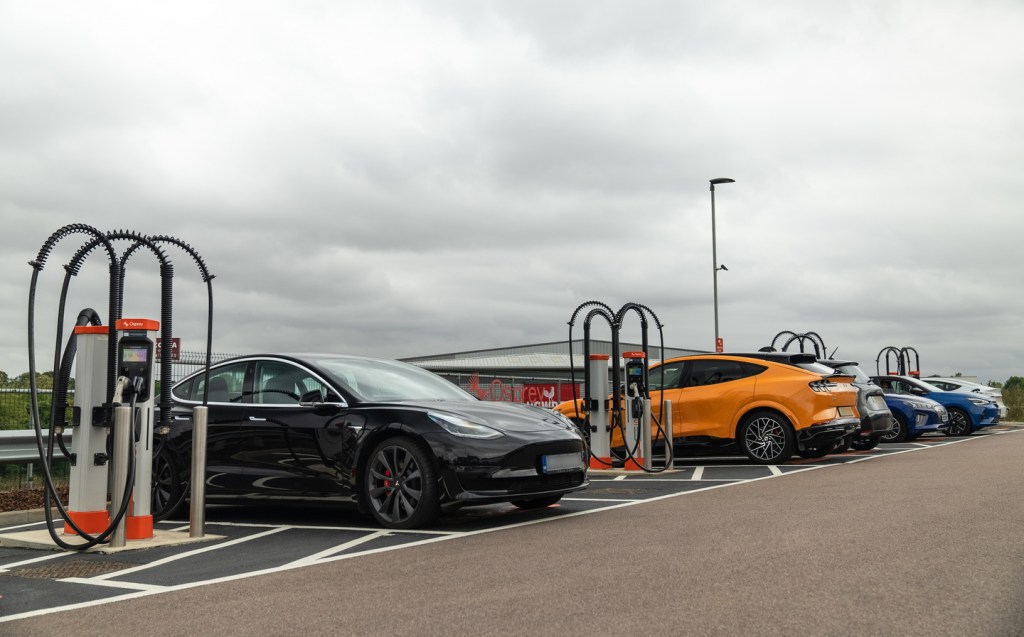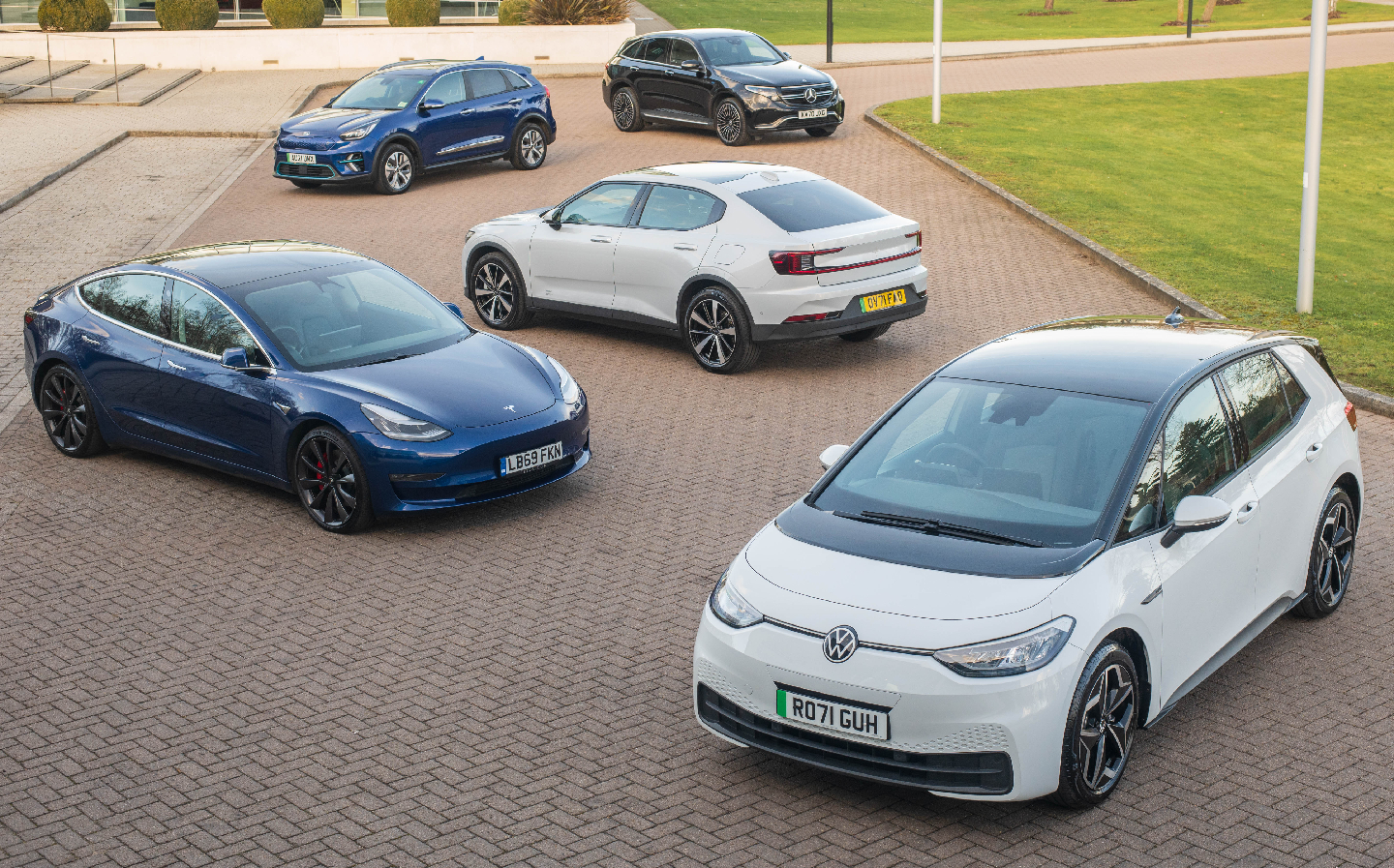Electric cars made up 17% of UK sales in September, with over one million now on the road
Milestone for EVs in the UK
Electric cars made up 17% of sales in September with more than one million now on UK roads, according data released today.
But while EVs continued to increase their market share, the exponential growth rate in their sales seen earlier in the year has slowed.
According to data from not-for-profit green motoring consultancy New AutoMotive, while combined pure-electric and hybrid vehicle sales were down by 9% in September compared to the same month last year, both have still managed to increase their market share for the month amid a period that saw substantial falls in the market share of petrol and diesel vehicles.

It should be noted, however, that New Automotive recorded a 20% drop in new car sales year-on-year overall, but official registration figures from the Society of Motor Manufacturer and Traders (SMMT), the UK’s automotive trade body, show a 3.6% increase in overall car sales.
The SMMT figures, which are measured in a different way, show an increase in pure-electric car sales of 16.5% for September year-on-year. With a boatload of Teslas having arrived in the UK in September, the American manufacturer made up more than 30% of total EV sales last month and a strong 5% of new car sales overall.
It was a strong month for BMW, too, whose 2,212 electric car sales (second after Tesla, and 7.8% of all electric cars registered) marked more than a doubling of its battery-electric sales year on year.
Highlighting the impact of the ongoing supply chain crisis that continues to throttle car production around the world, it was a poor month in terms of electric vehicle sales for Volkswagen and Audi. The production output of the Volkswagen Group has been particularly badly affected as a result of the war in Ukraine as it employed a number of component manufacturers there making vital parts such as wiring looms.
Hyundai and Kia also saw a drop off in EV sales during what it traditionally one of the two strongest months of the year for sales.

Genesis topped the table for September as the brand for sale in the UK that has been the quickest to electrify. This perhaps isn’t surprising as the company was not selling cars in the UK last September, but the 96 electric Genesis units sold in the UK this September made up 83.5% of the company’s total sales for the month.
Mike Hawes, the SMMT’s chief executive, noted that September 2022 saw Britain’s millionth electric car reach the road, which he called “an important milestone in the shift to zero emission mobility.”
He added: “Battery electric vehicles make up but a small fraction of cars on the road, so we need to ensure every lever is pulled to encourage motorists to make the shift if our green goals are to be met.
“The overall market remains weak, however, as supply chain issues continue to constrain model availability. Whilst the industry is working hard to address these issues, the long-term recovery of the market also depends on robust consumer confidence and economic stability.”
As well as analysing monthly sales trends, New AutoMotive’s Electric Car Count looks at regional differences in EV uptake using a three-month rolling average of new car registrations to account for monthly fluctuations.
According to its data, Oxfordshire has the highest share of new electric vehicle registrations at 31%, with Anglia and North-East England both on 22% and London and Birmingham just behind on 20%.
“Electric cars have secured an impressive share of the market,” said New AutoMotive’s co-founder and head of policy, Ben Nelmes, commenting on the latest round of data.
“While the recent turbulence in financial markets is unlikely to have had much impact on September’s sales figures, they may prove to be an issue going forwards as the cost of financing the purchase of a new car increases with interest rates.
“So far, 2022 has seen weaker new car sales figures than 2020, when the Covid-19 pandemic was at its peak. Any drop in sales of EVs makes it harder for the UK to meet its carbon budgets and slows efforts to reduce our reliance on expensive, imported fuels. It is welcome to see that EV sales are holding up so well given the current headwinds in the market.
Nelmes claimed that electric cars charged at home on a standard variable tariff are still more than 40% cheaper to run per mile compared to petrol and diesel alternatives.
“As the cost-of-living crisis continues to hit new car sales, more and more consumers may choose to go electric because of the savings EVs offer, insulating drivers from the worst of the market downturn.”
Related articles
- After reading about the increased market share of EVs, you might be interested to read Will Dron’s review of the Genesis GV60
- A new survey has found that three fifths of drivers put off electric cars by rising home energy prices
- Click here to see all the car makers’ electric vehicle plans
Latest articles
- Aston Martin Valkyrie AMR-LMH hypercar hits track ahead of 2025 Le Mans challenge
- Porsche has begun testing the electric Cayenne
- Cupra Leon 272 eHybrid 2024 review: Bigger battery, better tech … but is it a Cupra?
- Porsche 911 GTS 2024 review: Hybrid heresy or more Stuttgart genius?
- Extended test: 2023 Vauxhall Astra Sports Tourer GS PHEV
- Ford Capri revival has faced a lot of flak… but are buyers put off? Here’s what visitors to the Festival of Speed had to say
- F1 2024 calendar and race reports: What time the next grand prix starts and what happened in the previous rounds
- ‘No timeframe’ for how long Volvo’s returning estate cars will be on sale in UK
- Kia Picanto 2024 review: Updates add spice to cute Korean city car














